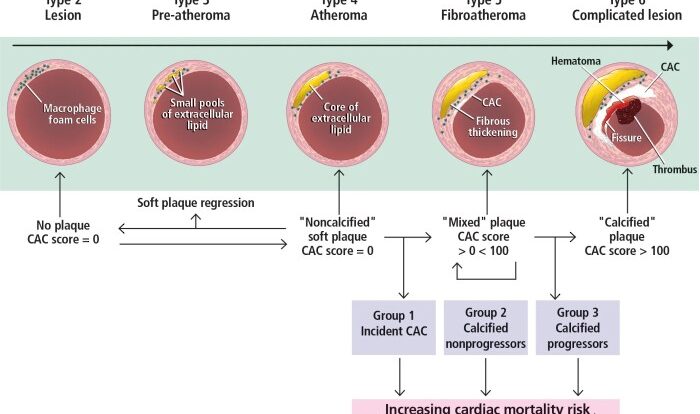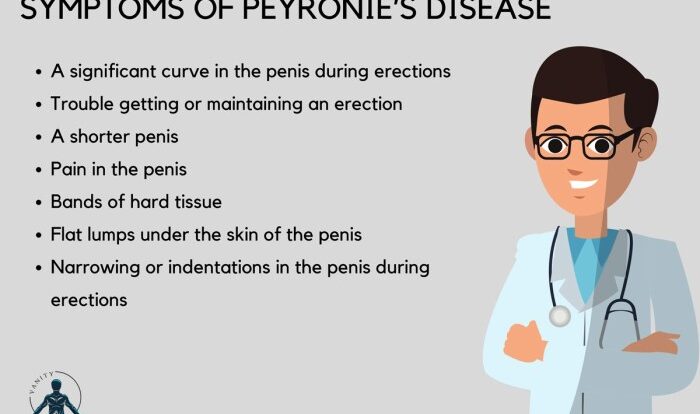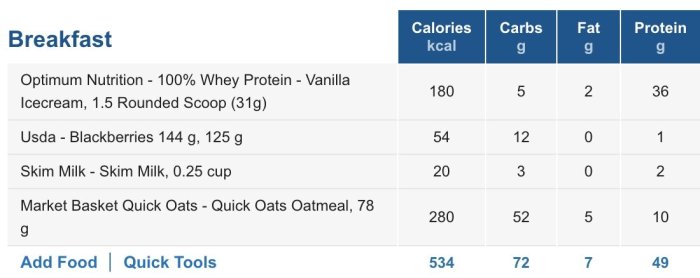How to lose weight 10 years after gastric bypass – Losing weight 10 years after gastric bypass presents unique challenges, but with the right strategies, it’s possible to maintain weight loss and improve overall health. This guide provides a comprehensive overview of dietary modifications, exercise regimens, behavioral therapy, and lifestyle adjustments essential for long-term weight management after gastric bypass.
Understanding the physiological and hormonal changes that occur after surgery is crucial for successful weight loss. Common reasons for weight regain and strategies to overcome them are discussed, empowering individuals to make informed choices.
Understanding the Challenges: How To Lose Weight 10 Years After Gastric Bypass
Physiological and Hormonal Changes
Ten years after gastric bypass, several physiological and hormonal changes can contribute to weight regain. The restrictive component of the surgery, which initially limits food intake, may gradually diminish as the stomach pouch expands over time. This can lead to increased calorie consumption and weight gain.
Additionally, hormonal changes, such as decreased levels of appetite-suppressing hormones like GLP-1 and PYY, can make it more difficult to feel full and control hunger.
Common Reasons for Weight Regain
Weight regain after gastric bypass can also be attributed to several behavioral factors. These include:
- Dietary Indiscretion:Consuming high-calorie foods, excessive portions, or sugary drinks can contribute to weight gain.
- Reduced Physical Activity:Maintaining a regular exercise routine is crucial for weight management, but activity levels may decline over time.
- Emotional Eating:Stress, boredom, or other emotional triggers can lead to overeating.
- Grazing:Constantly snacking throughout the day can add up to significant calorie intake.
- Medical Conditions:Certain medical conditions, such as hypothyroidism, can affect metabolism and contribute to weight gain.
Dietary Modifications

Post-gastric bypass patients require tailored dietary modifications to promote long-term weight loss and overall health. These modifications focus on nutrient-rich foods, portion control, and adequate protein intake.
A balanced diet includes lean proteins, fruits, vegetables, and whole grains. These foods provide essential nutrients, vitamins, and minerals necessary for optimal health.
Portion Control
Portion control is crucial for weight loss. Patients should use smaller plates and bowls, and be mindful of serving sizes. It is recommended to eat slowly and pause between bites to allow the brain time to register fullness.
Protein Intake
Protein is essential for satiety and muscle preservation. Post-gastric bypass patients may struggle to consume adequate protein due to the reduced stomach size. Therefore, it is important to plan meals that prioritize protein sources such as lean meats, poultry, fish, beans, and lentils.
Exercise Regimen
Regular exercise is crucial for maintaining weight loss after gastric bypass. It helps burn calories, build muscle, and improve overall health.
If you’ve had gastric bypass surgery 10 years ago and are looking to lose more weight, consider exploring your options for egg donation. To qualify as an egg donor, you’ll need to meet certain weight requirements, which you can learn more about by clicking here . Returning to the topic of weight loss after gastric bypass, remember that consistency and a balanced diet are key to long-term success.
When designing an exercise plan, it’s important to start gradually and listen to your body. Start with short, low-intensity workouts and gradually increase the duration and intensity as you get stronger.
Cardiovascular Exercise
- Cardiovascular exercise, such as brisk walking, jogging, or swimming, is essential for burning calories and improving heart health.
- Aim for at least 30 minutes of moderate-intensity cardio most days of the week.
Strength Training
- Strength training, such as weightlifting or resistance band exercises, helps build muscle and increase metabolism.
- Incorporate strength training exercises into your routine at least twice a week.
Tips for Overcoming Exercise Challenges
- Find an activity you enjoy, as this will make it more likely that you’ll stick with it.
- Set realistic goals and don’t get discouraged if you don’t see results immediately.
- Listen to your body and rest when needed.
- Find a workout buddy or join a fitness class for support and motivation.
Behavioral Therapy
Cognitive behavioral therapy (CBT) is an effective form of therapy that helps individuals identify and change negative eating habits. CBT can assist in understanding the underlying thoughts and emotions that drive unhealthy eating patterns.
CBT strategies include:
Identifying Negative Eating Habits
- Keeping a food journal to track eating patterns and identify triggers.
- Challenging negative thoughts about food and body image.
- Developing healthy coping mechanisms for dealing with stress and emotions.
Coping with Stress and Emotional Eating
- Learning relaxation techniques such as deep breathing or meditation.
- Identifying alternative ways to manage stress, such as exercise or spending time with loved ones.
- Developing strategies to avoid emotional eating, such as distracting oneself with other activities or seeking support from others.
Lifestyle Adjustments
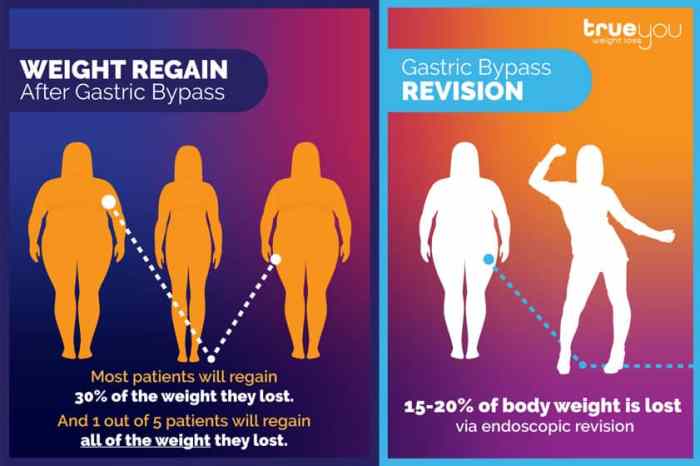
Maintaining a healthy weight after gastric bypass surgery requires significant lifestyle adjustments. These changes encompass sleep, stress management, hydration, and creating a supportive environment.
Sleep, Stress Management, and Hydration
Adequate sleep is crucial for overall health and weight management. Aim for 7-9 hours of restful sleep each night to support hormone regulation, reduce stress, and improve energy levels. Additionally, managing stress effectively is essential. Exercise, meditation, yoga, or spending time in nature can help reduce stress and prevent emotional eating.
Maintaining proper hydration is also vital. Drink plenty of water throughout the day to support metabolism, suppress hunger, and flush out toxins.
Creating a Supportive Environment
Surrounding yourself with a supportive network can significantly enhance your weight loss journey. Join support groups, connect with friends and family who understand your struggles, and consider working with an accountability partner.
Losing weight 10 years after gastric bypass can be challenging, but it’s possible. If you’re experiencing any flu-like symptoms, it’s important to consult with a medical professional. Click here to learn more about when to seek urgent care for flu symptoms.
Once you’ve ruled out any underlying health issues, you can focus on your weight loss journey. Remember, consistency and a balanced approach are key to long-term success.
Create a home environment that fosters healthy habits. Stock your fridge with nutritious foods, keep tempting treats out of sight, and establish regular mealtimes to prevent overeating.
Benefits of Support Groups and Accountability Partners
Support groups provide a sense of community, encouragement, and accountability. Sharing experiences, tips, and challenges with others who have undergone similar surgeries can be invaluable.
If you’ve had a gastric bypass, maintaining your weight loss over time is crucial. Along the way, you might consider procedures like a tummy tuck. For those who’ve had a C-section, there’s the question of whether insurance covers it. Fortunately, information is available to help you make an informed decision.
As you navigate this journey of weight loss and body contouring, remember to prioritize your health and well-being.
Accountability partners offer external motivation and support. Regularly checking in with someone who understands your goals can help you stay on track and overcome setbacks.
Medical Considerations
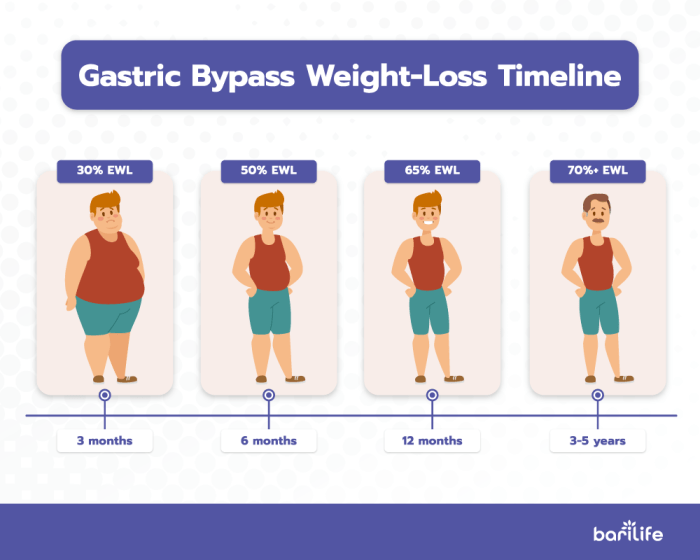
Gastric bypass surgery can lead to long-term weight loss, but it also presents unique medical considerations. It’s essential to understand the potential for nutritional deficiencies, the role of medications, and the availability of revision surgery options.
Nutritional Deficiencies
Gastric bypass alters the digestive process, affecting nutrient absorption. Patients may experience deficiencies in vitamins and minerals, including iron, calcium, vitamin B12, and vitamin D. Regular blood tests are necessary to monitor nutrient levels, and supplementation is often recommended to prevent deficiencies.
Medications, How to lose weight 10 years after gastric bypass
Medications play a role in weight loss maintenance after gastric bypass. Some patients may require medications to suppress appetite, control blood sugar, or manage acid reflux. It’s crucial to adhere to prescribed medication regimens and discuss any concerns with your healthcare provider.
Revision Surgery
In some cases, patients may experience weight regain or other complications after gastric bypass. Revision surgery options are available to address these issues. These surgeries may involve adjusting the size or shape of the gastric pouch, or creating a new gastric bypass.
The decision for revision surgery should be made in consultation with a qualified healthcare professional.
Patient Education
Gastric bypass surgery is a major procedure that can lead to significant weight loss. However, it is important to remember that weight loss surgery is not a quick fix. It is a tool that can help you lose weight and improve your health, but it is up to you to make the necessary lifestyle changes to maintain your weight loss.
After gastric bypass surgery, your body will undergo a number of changes. These changes can include:
- A smaller stomach
- A shorter digestive tract
- Changes in your metabolism
- Changes in your hormones
These changes can affect the way you eat, digest food, and absorb nutrients. It is important to understand these changes and how they can affect your weight loss journey.
Create a comprehensive guide to help patients understand their post-gastric bypass body.
A comprehensive guide to help patients understand their post-gastric bypass body should include the following information:
- A description of the changes that occur in the body after gastric bypass surgery
- An explanation of how these changes can affect weight loss
- Tips for eating, drinking, and exercising after gastric bypass surgery
- A list of potential complications after gastric bypass surgery
- Resources for support and education
Provide resources for support and education.
There are a number of resources available to help patients understand their post-gastric bypass body and make the necessary lifestyle changes to maintain their weight loss. These resources include:
- Support groups
- Online forums
- Registered dietitians
- Bariatric surgeons
- Books and articles
Organize a table comparing the differences between gastric bypass and other weight loss procedures.
The following table compares the differences between gastric bypass and other weight loss procedures:
| Procedure | Description | Advantages | Disadvantages |
|---|---|---|---|
| Gastric bypass | A laparoscopic procedure that creates a small stomach pouch and reroutes the small intestine | Significant weight loss, improved diabetes control, reduced risk of heart disease | Potential complications include bleeding, infection, and leaks |
| Sleeve gastrectomy | A laparoscopic procedure that removes a portion of the stomach | Less invasive than gastric bypass, less risk of complications | Less weight loss than gastric bypass, higher risk of weight regain |
| Adjustable gastric banding | A laparoscopic procedure that places an adjustable band around the stomach | Reversible, less invasive than gastric bypass | Less weight loss than gastric bypass, higher risk of band slippage or erosion |
Success Stories
Losing weight and maintaining it after gastric bypass surgery is a significant achievement. Individuals who have successfully navigated this journey serve as inspiring examples of the transformative power of the procedure.
These individuals have overcome numerous challenges, including the need for dietary modifications, adherence to exercise regimens, and the adoption of healthy lifestyle habits. They have demonstrated remarkable resilience and determination, showcasing the long-term benefits of weight loss maintenance, including improved physical health, increased self-esteem, and enhanced quality of life.
Overcoming Challenges
- Dietary Modifications:Adjusting to a post-gastric bypass diet requires significant effort. Individuals have successfully navigated this challenge by seeking professional guidance from registered dietitians, attending support groups, and experimenting with various food options to find what works best for their bodies.
- Exercise Regimen:Regular physical activity is crucial for maintaining weight loss. Success stories highlight the importance of finding enjoyable activities, setting realistic goals, and gradually increasing intensity over time.
- Behavioral Therapy:Cognitive-behavioral therapy (CBT) has been instrumental in helping individuals address underlying emotional issues that may contribute to weight gain. CBT techniques empower individuals to identify and change unhealthy thought patterns and behaviors.
Long-Term Benefits
- Improved Physical Health:Weight loss maintenance has led to significant improvements in physical health, including reduced risk of chronic diseases such as heart disease, diabetes, and cancer.
- Increased Self-Esteem:Losing weight and maintaining it has boosted self-esteem and confidence, empowering individuals to pursue their personal and professional goals.
- Enhanced Quality of Life:Overall quality of life has improved dramatically, with individuals reporting increased energy levels, better sleep, and greater mobility.
Long-Term Monitoring
Regular follow-up appointments with healthcare professionals are crucial for maintaining weight loss and overall health after gastric bypass surgery. These appointments provide an opportunity for healthcare providers to monitor your progress, assess your nutritional status, and make any necessary adjustments to your treatment plan.
Nutritional Assessments and Adjustments
Ongoing nutritional assessments are essential to ensure that you are meeting your nutritional needs and avoiding any deficiencies. Your healthcare provider will monitor your weight, body composition, and blood work to assess your nutritional status. Based on these assessments, they may recommend adjustments to your diet or supplements to ensure that you are getting the nutrients you need.
Weight and Body Composition Monitoring
Monitoring your weight and body composition is important for tracking your progress and identifying any areas where you may need additional support. Your healthcare provider will use various methods to assess your body composition, such as body mass index (BMI), waist circumference, and body fat percentage.
Overall Health Monitoring
In addition to monitoring your weight and nutritional status, your healthcare provider will also assess your overall health. This may include checking your blood pressure, cholesterol levels, and other health markers. Regular check-ups allow your healthcare provider to identify any potential health issues early on and take steps to address them.
Additional Resources
To further support your weight loss journey, consider these reputable sources for information and support:
- Websites:
- American Society for Metabolic and Bariatric Surgery (ASMBS): https://asmbs.org/
- Obesity Action Coalition: https://obesityaction.org/
- National Institute of Diabetes and Digestive and Kidney Diseases (NIDDK): https://www.niddk.nih.gov/
- Books:
- The Gastric Bypass Surgery Weight Loss Handbookby Donna Ryan
- The Bariatric Surgery Handbook: A Guide for Patients and Familiesby Mary T. Forde and Alison A. Murad
- The Long-Term Success Guide for Bariatric Surgery Patientsby Jamie I. Morone
- Support Organizations:
- ObesityHelp: https://www.obesityhelp.com/
- Lap-Band Talk: https://www.lapbandtalk.com/
- Gastric Bypass Support Group: https://www.gastricbypass.com/
- Online Forums and Discussion Groups:
- Reddit r/gastricbypass: https://www.reddit.com/r/gastricbypass/
- Inspire Gastric Bypass Support Group: https://www.inspire.com/groups/gastric-bypass-support-group/
Conclusion
Maintaining weight loss after gastric bypass requires a multifaceted approach that addresses both physical and behavioral factors. By following the guidelines Artikeld in this guide, individuals can overcome challenges, establish healthy habits, and achieve their long-term weight loss goals. Remember, the journey may not be easy, but with determination and support, it is possible to achieve lasting success.
Commonly Asked Questions
Can I eat the same foods as before gastric bypass?
No, dietary modifications are necessary after gastric bypass to ensure proper nutrition and prevent complications.
How much exercise should I do after gastric bypass?
Aim for at least 150 minutes of moderate-intensity exercise per week, gradually increasing intensity and duration as tolerated.
What is cognitive behavioral therapy (CBT)?
CBT is a type of therapy that helps individuals identify and change negative eating habits and behaviors that contribute to weight gain.
